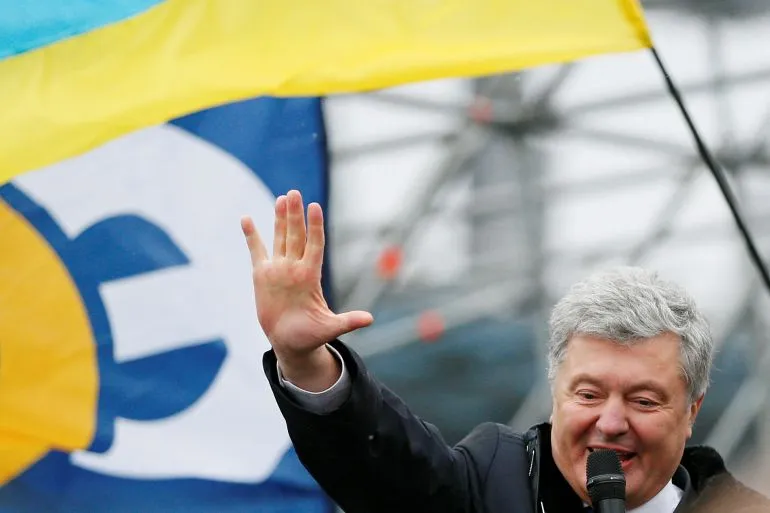Former Ukrainian President Petro Poroshenko was denied permission to leave Ukraine for a meeting with Hungarian Prime Minister Viktor Orban, despite having previously received approval from parliament to do so. Under martial law, Ukrainian men between the ages of 18 and 60 are not allowed to leave the country without special permission, and security officials claimed that Poroshenko’s planned meeting with Orban would make him a “tool in the hands of the Russian special services.”
Poroshenko, who lost his re-election bid to current President Volodymyr Zelensky in 2019, had planned to meet with US House of Representatives Speaker Mike Johnson and visit the Polish parliament during his trip. However, security officials claimed that his meeting with Orban, who has praised Russian President Vladimir Putin and refused to support Ukraine’s bid for EU accession, would put him at risk of compromising national security.
In a statement on social media, Poroshenko characterized his experience at the border as an “attack on unity,” but has yet to comment on the allegations that he planned to meet with Orban. The incident has raised concerns about the limits of personal freedom during wartime and the extent to which the government is willing to restrict the movements of individuals who may pose a threat to national security.

Former Ukrainian President Petro Poroshenko (Via Petro Poroshenko/Twitter)
Meanwhile, the situation at Ukraine’s Zaporizhzhia nuclear power plant, which is partially occupied by Russian forces, has become increasingly dire. The plant was forced to switch to diesel generators on Saturday after it was unable to draw power from two of the lines connecting it to the local energy grid, and officials warned that it was on the verge of a nuclear and radiation accident. The International Atomic Energy Agency (IAEA) has been monitoring the plant’s safety, but officials have raised concerns about the potential risks posed by the situation.
In related news, Russia launched a series of aerial attacks on Ukraine overnight, including 11 Iranian-made Shahed drones and one guided cruise missile. Ukrainian air defenses reportedly destroyed all but one of the drones, while Russian forces claimed to have shot down two Ukrainian C-200 rockets over the Sea of Azov. The conflict has escalated in recent weeks, with both sides exchanging heavy fire and neither side showing signs of backing down.
The incident highlights the tense situation in Ukraine, where martial law is in place and personal freedoms may be restricted in the name of national security. It also underscores the ongoing conflict between Russia and Ukraine, which has sparked concerns about the potential for further escalation and the risks posed by Ukraine’s nuclear facilities.
